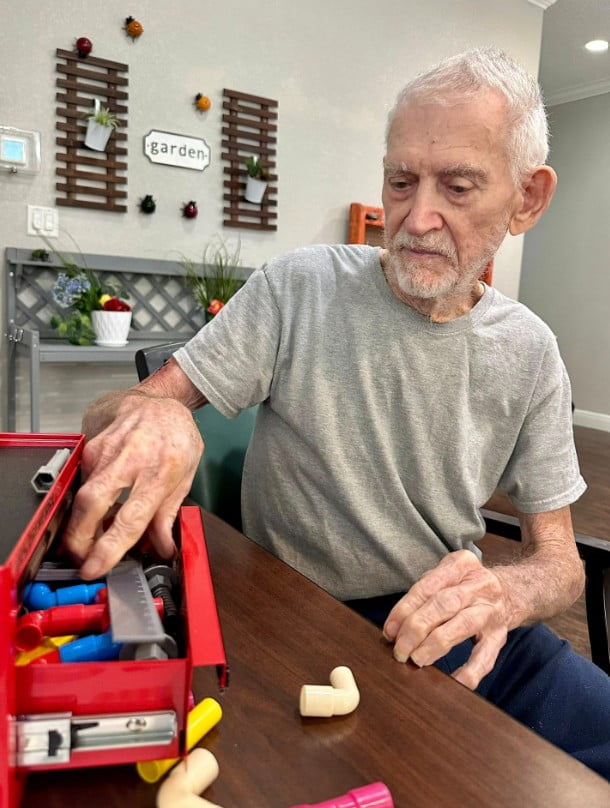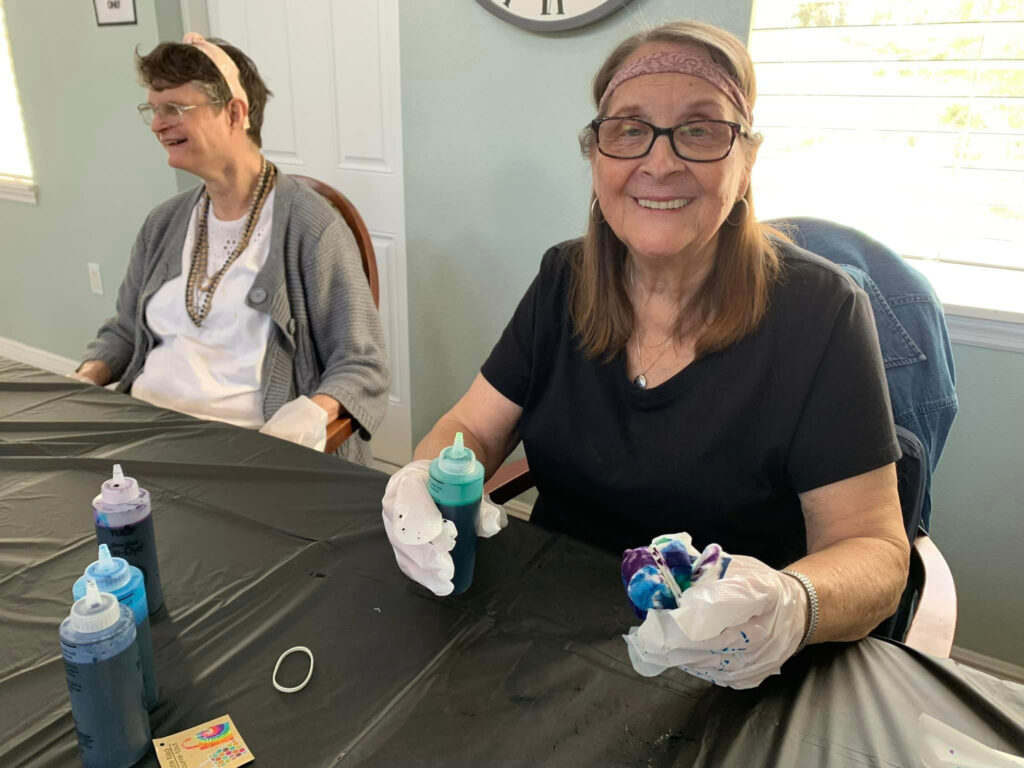Start With What Matters Most: Their Care Needs
💡 Before we talk numbers, let’s talk reality. Because no financial plan makes sense if it doesn’t match the actual level of care your loved one needs.
Step 1: Think Human, Not Just Health
This isn’t about medical charts. It’s about how they live, feel, and function every day.
Ask yourself:
✅ Do they repeat stories, forget names, or misplace objects daily?
✅ Are they safe cooking, walking alone, or remembering medication?
✅ Do they get easily overwhelmed, anxious, or disoriented in new places?
✅ Do they still enjoy socializing, music, or specific routines?
📌 Pro tip: Don’t just look for what’s “wrong.” Look for what still brings them joy. That’s part of their care plan too.
Step 2: Know the Care Levels (Yes, there’s a spectrum)
Here’s a quick cheat sheet to avoid confusion:
Level of Support | What It Means | Typical Signs |
Mild Support | Gentle structure and reminders | They need help with time, routines, or appointments |
Moderate Care | Daily assistance + memory-safe environment | Confusion, wandering, or mood shifts |
Advanced Memory Care | 24/7 care, safety-first design | They need constant supervision and emotional support |
Step 3: Avoid the “One-Size-Fits-All” Trap
Every person is different. Some memory care communities offer creative therapies, music programs, or pet-friendly environments. Others focus more on clinical structure. Ask what your person would respond to best. Would they thrive with morning walks? A routine meal schedule? Painting or dancing?
✨ Summary
- ✅ Identify who your loved one is today—not just their condition.
- ✅ Match their behavior and needs to a care level, not just a brochure label.
- ✅ Don’t ignore the joy factor—it’s part of real care.
- ✅ Knowing this = smarter decisions + peace of mind later.

Understand the True Costs and the Resources You Might Be Missing
💡 You can’t make smart financial decisions if you don’t know what’s really on the table—or what’s quietly slipping through the cracks.
What Does Memory Care Actually Cost?
Let’s get honest. Memory Care isn’t cheap—but neither is peace of mind.
Costs vary widely depending on location, services, and level of care. On average, Memory Care ranges from $3,800 to $8,000+ per month in the U.S.
But wait—before your brain goes full spreadsheet mode or panic mode—here’s the good news:
🧩 Many families don’t pay that amount out-of-pocket. Why? Because they don’t have to.
What You Might Be Missing (and It Could Save You Thousands)
Most people aren’t financial planners. And even the best planners sometimes overlook resources they’re eligible for. Ask yourself:
✅ Are you aware of VA Aid & Attendance benefits for veterans and surviving spouses?
✅ Have you considered long-term care insurance or life insurance with conversion options?
✅ Do you know how to use home equity strategically through HECM (reverse mortgage) or sale proceeds?
✅ Is your loved one eligible for tax deductions related to medical or care expenses?
🚨 Spoiler: If you answered “no” or “not sure” to any of the above, you’re probably leaving money on the table.
A Quick Breakdown of Common Funding Options
Option | What It Covers | Worth Exploring If… |
Personal Savings | Day-to-day and long-term expenses | You have access to IRAs, 401(k)s, or savings |
Veteran Benefits | Monthly care stipends | Your loved one served or was married to a veteran |
Bridge Loans | Temporary support | You’re waiting for home sale, insurance payout, or VA approval |
Long-Term Care Insurance | Monthly care costs | You took out a policy years ago (check now!) |
Reverse Mortgage (HECM) | Unlocking home equity | Your loved one owns a home and wants to stay in control |
Life Insurance Conversion | Turn policy into monthly funds | The policy is no longer needed as a death benefit |
Tax Deductions | Care-related expenses | You pay for medical services or housing with care included |
At The Goldton at St. Petersburg, You’re Not Alone in This
We know this can feel overwhelming—and that’s why we’re here to help you navigate it.
Whether you’re considering Memory Care, Assisted Living, or a combination of both, we offer personalized support and flexible financial options designed to fit your loved one’s needs.
Financial Assistance? No problem—we’ve got you (h3)
Our trusted partners like ElderLife Financial and AidandAttendance.com work hand-in-hand with you to explore every option available. From bridge loans to VA benefits to personalized guidance, we’re committed to helping you secure the care your loved one deserves without unnecessary stress.

Build a Plan That Works Today—and Still Supports Tomorrow
✨ Good planning isn’t just about covering the next few months—it’s about building a flexible, resilient structure that can grow with your loved one’s needs.
Memory Care needs can change quickly. What works today might be too little—or too much—tomorrow. That’s why your financial plan should be modular, adaptable, and layered, like a great wardrobe or a smart investment portfolio.
🧱 Layer 1: The Now Foundation
What you need to cover today
- Current monthly cost of care
- Essential medical needs and medications
- Personal items, therapies, and daily support
- One-time move-in or setup fees
🛠 Tool: Use a monthly expense tracker like Tiller or a simple Google Sheet to stay on top of recurring costs.
Layer 2: The Flex Zone
What might change in 6–12 months
Memory Care is dynamic. Your loved one might need:
- More personalized therapies
- A private room or safer space
- Behavioral support
- Upgraded dietary plans or mobility aids
🔍 Tool: Set quarterly reminders using Google Calendar or Notion to review their condition and care level with staff.
🚀 Layer 3: The Long Game
Plan for what the future could bring, just in case
No one wants to think worst-case, but your plan should:
- Include a financial buffer for unexpected needs
- Anticipate inflation in care costs
- Be ready for end-of-life expenses or advanced interventions
💡 Tool: Use ElderLife Financial’s projection calculator to model future care costs and see if your plan holds up 3–5 years ahead.
💬 Pro Tip: Build with Options, Not Just Answers
A good plan isn’t rigid. It should respond to change without breaking your budget or your peace of mind. That’s why many families combine funding sources (like insurance + VA benefits + home equity), so no single channel carries the entire weight.
At The Goldton at St. Petersburg, We Plan With You
Your loved one’s needs matter now—and later.
Our team works hand-in-hand with families to build custom financial strategies that make sense today, but are also ready to evolve. Whether you’re planning with bridge loans, long-term care insurance, or simply need a clear path forward, we’re here to make it happen—without stress, guesswork, or surprises.
SCHEDULE YOUR TOUR TODAY!

